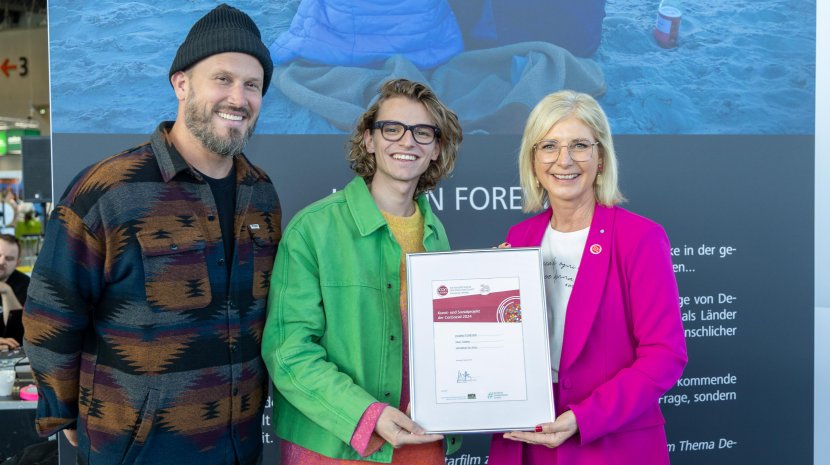

Teun Toebes achieved bestseller status with his book. As a 21-year-old, the young Dutchman lived with people with dementia for three and a half years. At ConSozial, Germany's leading congress trade fair for the social economy, he will receive an honour and present his book.
In "Der Einundzwanzigjährige, der freiwillig in ein Pflegeheim zog und von seinen Mitbewohnern mit Demenz gelernt, was Menschlichkeit bedeutet", he wrote about his experiences in this sensational experiment and has since been constantly campaigning for a different way of dealing with people with dementia - including at ConSozial. In this interview, he reveals what we can change as a society.
Mr Toebes, what makes a young person voluntarily go into a locked ward?
At the age of 21, I decided to live in a locked ward for people with dementia because I am very concerned about the future of people with dementia.
It is precisely by giving a voice and listening to people who currently have no voice that we can achieve this change. Not by organising a care system based on our assumptions about people's needs, but by supporting people with their needs. I am confident that we can change our future.
Dementia is not a problem of the healthcare system, but a problem of society.
How has living with people with dementia shaped you in three and a half years, what have you learnt?
After living with people with dementia during this time, I have learnt that we hold the key to change in our own hands. During these years, I was able to build wonderful friendships and became very fond of my flatmates. At the same time, however, I have also experienced the pain of my flatmates on a daily basis. The current image of dementia is pitch black and the care home is an exclusionary system based on the disease. If this does not change, we cannot expect quality of life to be the outcome and the goal.
When we listen to people with dementia, it becomes clear that while dementia can be disruptive, much of the pain that people experience (e.g. no longer being seen as fully valued, experiencing social exclusion) is not caused by the dementia, but by the way we as a society treat people. On the one hand, this is painful to hear, but on the other hand it also gives us hope for what we can change as a society. That's why I believe that dementia is not a problem of the healthcare system, but a problem of society.
You say that we have the basis for change, we just need to adopt a different perspective. What do you mean by that?
Our own way of thinking is the biggest obstacle to this change. At the moment, we often see people with dementia as "the other" who can change. I believe that if we start to think differently, we will also act differently. If we see people with dementia not just as a loss, but as people like you and me, our whole approach will change. A different view of people is the basis.

Teun Teubes is honoured by Ulrike Scharf, Bavarian Minister of State for Family, Labour and Social Affairs, for his social commitment.
You will be honoured by the Bavarian State Ministry of Science and the Arts at ConSozial. What does this honour mean to you?
Above all, it means that the message that moves many people is being heard more and more. I am not only very grateful for this, but it is particularly necessary in order to realise this social change. After all, it is not a question of if, but when we personally come into contact with dementia.
Everyone is needed for this cultural change: the healthcare system, entrepreneurs, politicians - everyone. There is hope for a better future, so we need to spread the message, get our voices out there. And of course it's great that the Bavarian State Ministry is becoming an ambassador for this message.
ConSozial brings together all the players in the social economy in German-speaking countries. An ideal platform to "get your voice out there"?
Definitely. I am therefore looking forward to talking to many people at ConSozial about how we can make our society more inclusive. The change has begun, let's continue it together!



